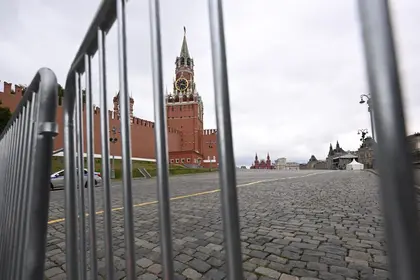In the week since Prigozhin's attempt to take Moscow was abandoned, global commentators have been debating what is in store next for Moscow.
Fred Hoffman, an assistant professor of Intelligence Studies at Mercyhurst College says he has “for some time” been saying that “we’re headed for a 1917 scenario here, where the Russians simply mutiny.”
JOIN US ON TELEGRAM
Follow our coverage of the war on the @Kyivpost_official.
He adds: “All it takes is for word to get out that one unit has mutinied, and all of a sudden, the whole army follows suit. After last week’s Prigozhin escapade, I believe the probability of that happening has increased.
- Obtain the most recent updates on the Ukraine situation today.
- Find the newest Ukraine news pieces that came out today.
“The cream of the crop of Russia’s armed forces – its Spetznaz, VDV, and elite tank forces – are gone; their bodies are now fertilizing Ukrainian fields. Last September, Putin threw untrained conscripts into the mix to try and simply overwhelm the Ukrainians. It didn’t work."
Even if Russians do not scatter, and stay in the military, Putin still has plenty to worry about, says Mark Katz, a professor of international relations at George Mason University.
"Putin now has to spend more of his time worrying about staying in power than about the war in Ukraine,” he says. “And when it comes down to it: staying in power is a higher priority for him than the war in Ukraine.
“The problem for him, though, is that while continuing the war could weaken him, ending the war could free up a lot more troops who can be used against him by ambitious generals at some point.”

Russia Used Social Media to Meddle in 2024’s US Presidential Election
Things are not looking better for the Kremlin when they take a glance at the economic markets.
Oleksandr Lugovsky, a Ukrainian who achieved his PhD in economics in the United States, says: "The Russian Ruble depreciating approximately 40% versus the dollar (and other major currencies), in just one year, indicates that the markets are losing confidence in the Russian economy and its future prospects.
“For reference, consider that when the Belarusian Ruble lost 30% of its value in 2015, analysts considered that as poor performance."
Ultimately, the Kremlin's efforts to stabilize the Ruble since last year made the Russian economy “more isolated and unattractive to foreign direct investment,” Lugovsky says.
“For a country that is already overly dependent on oil and gas revenues, that spells future gloom. A perennially weak Russian Ruble will preclude Russians from enjoying the comforts they have gotten used to over the last couple of decades and slide into poverty.”
Kenneth Dekleva, an American psychiatrist who spent years at the US Embassy in Moscow and carefully studied Putin, disagrees that the Kremlin is on the brink.
“While I agree that the Prigozhin mutiny/coup attempt was a threat to Putin, and one which revealed some chinks in the power vertical structure which Putin has created over 23 years, I doubt that Putin’s power has weakened significantly, as he still controls the key power structures,” he says.
“Also, one can expect some reshuffling among the intelligence ministries and MoD, as well as Wagner. We should be very careful not to underestimate Putin’s resilience and ability to bounce back from such adversity. To borrow judo terminology, he hasn’t 'tapped out' yet."
In an interview with CNN, Ukrainian President Volodymyr Zelensky gave his own view, saying: “We see Putin’s reaction. It’s weak."
“We see he doesn’t control everything. Wagner’s moving deep into Russia and taking certain regions shows how easy it is to do. Putin doesn’t control the situation in the regions.”
“All that vertical of power he used to have is just crumbling down.”
No matter what happens next in Moscow, it is clear that there are already grave doubts about Putin's ability to keep his twenty-three-year long reign from crashing-down.
You can also highlight the text and press Ctrl + Enter






